
Искра Новаковска
Иако ниту еден од новинарите кои беа интервјуирани не се жалел официјално за случај на мобинг ниту во Синдикатот, ниту во редакцијата каде работат , неколкумина од нив велат дека биле предмет на мобинг, но го премолчеле заради тоа што е “тешко да се докаже, но е и долг и мачен процес“, вели синдикалната лидерка Тамара Чаусидис. Скоро сите интервјуирани новинари се согласуваат дека мобингот е често секојдневен начин на комуникација на уредништвото со новинарите и тие го трпат изживувањето, навредите, високите тонови со кои им се обраќаат уредниците- само заради страв да не го изгубат работното место и со тоа платата, колку и да е мала и понижувачка.
Како што вели една новинарка која до пред еден месец работеше во комерцијална ТВ блиска до власта на Груевски, а сегашна опозиција- мобингот опстанува без поддршка од надлежните институции:
“Да, мобинг има. Новинарите постојано се повикуваат на одговорност за тоа што го работеле, бидејќи некому тоа не му се допаднало и биле казнувани по 10, 15 проценти од платата.
Се сеќавам, на пример, кога поголема група од новинари беа избркани од работа преку ноќ. Се жалеа до сите можни институции, но подршка не добија, освен декларативни зборови на охрабрување.
Една од тие колешки ја тужеше телевизијата, но го изгуби спорот- се работеше за самохрана мајка со малолетно дете. Таа напиша и отворено писмо во кое образложи дека списокот на отпуштени лица е правен од партијата на власт (ВМРО ДПМНЕ). На ова доби одговор од раководството на телевизијата кое беше емитувано во вестите со омаловажување на нејзината работа и со непристоен предлог – ако не може таа да се грижи за детето, телевизијата ќе и го чува”.
Оваа новинарка мобингот тесно го врзува со политичките притисоци, кои имаат директна последица и врз платата на новинарите, а целата операција всушност ја изведуваат главните уредници, кои многу често и не спроведуваат таква наредба од сопствениците на медиумите, туку самостојно преземаат иницијатива за мобинг врз колегите, за да ја зачуваат функцијата, за која сметаат дека е престижна, но и за да го потврдат на тој начин авторитетот и моќта- дека имаат целосна контрола врз “своите новинари”, сметајќи дека со сеење страв, ќе ја ја обезбедат почитта и авторитетот.
Атмосфера на страв и лов на вештерки
Ретко кој новинар од интервјуираните педесетина признава дека бил предмет, жртва на мобинг, но огромен дел од новинарите огорчено сведочат за постојан мобинг врз колегите, став кој го потврдува и новинарка која бараше да остане анонимна:
“Немав јас мобинг, но мои колеги постојано изјавуваат дека им се врши мобинг. Но, никој нема пријавено таков случај. Мислам дека на сите ни е тешко да препознаеме што од тоа што ни се случува е мобинг, а што е нешто што треба да го прифатиме како нужно зло или тешкотија при работењето. Но, имаше медиум каде сите тврдеа дека им бил вршен мобинг од уредник. Но, сите беа среќни што личноста веќе не беше на таа позиција и тоа им беше доволно. Мислам дека никој не сака да оди на пријави, тужби и сл. на таа тема”.
Новинарка која има работено во комерцијален дневен весник, вели дека имала неколку примери на мобинг, но малтетирањето не го поврзува со новинарска непослушност и одбивање да служи на партиски или други интереси:
“ На суптилен но и на помалку суптилен начин. Ова мислам дека е многу деликатна тема и голем проблем кој тешко се детектира и уште потешко санкционира. Мобингот постои, на него биле изложени и мои колеги, ретко кој се пожалил некому. Од вас се очекува ова сами да си го решите во балкански стил – покажи заби! Нема правила на игра, ниту професионален кодекс на однесување. Секој мобинг може да пројде под изговорот „се зезав“!
На пример, во една сосема нелогична ситуација, со ништо предизвикан, еден колега ми рече – мрш! Откако подоцна насамо инсистирав да ми објасни зошто така постапи, ми одговори дека бил нервозен и не се сеќава дека воопшто такво нешто изустил. Се извини.
Мислам дека кога во тимот има атмосфера на страв и „лов на вештерки“ од различни причини, мобингот станува многу изразен, по принцип на домино коцки. “

Соња Крамарска
Љубиша Станковиќ, новинар кој работеше во згаснатиот весник “Утрински весник”, а воедно беше и синдикален лидер, говори за неколку случаи на мобинг на тогашната главна уредничка Соња Крамарска:
“Уцените и заканите беа составен дел од „уредникувањето“ на тогашната главна уредничка. Новинарите знаеја дека казните доаѓаат на секои два до три месеци, само беше непознато за колкав процент ќе биде намалена платата, а која пред комплетниот „распад“ на „МПМ“ дојде на ниво од 300 евра или 18.000 денари.
Колку за илустрација: зад името на Соња Крамарска се врзуваат отпуштања на десетина новинари, а уште пет-шест сами си заминаа, бидејќи не можеа да го поднесат теророт. Имено, Крамарска не уредуваше весник, туку луѓе. За неа, од некои новинарки, беа поднесени приговори кои упатуваа на форми и облици на мобинг, а кога уследија закани дека тоа ќе го стори целата Редакција, менаџментот ја разреши од функцијата главен и одговорен уредник и со тоа самите се спасија од одговорност”.
Малтретирањата на уредништвото во време на владеењето на ВМРО-ДПМНЕ најчесто се врзани со непослушност, одбивање на новинарите да служат на власта, на владејачката структура, со која и уредништвото и сопствеништвото имаат склопено пакт за пропагандни цели, прикриен под фразата- соработка со партиите. За оние кои не се согласуваат да бидат ударна тупаница на власта или барем нивен послаб, но значаен мегафон, следува парична казна, за која најчесто молчат:
“Платите на новинарите изминатите години константно се намалуваа. Ако пред повеќе од 5 години, платите се движеа во категорија високи (околу 800 евра), потоа под изговор дека фирмата е во „тешка финансиска криза“ се намалуваа и стигнаа до сума од средна плата (околу или под 500 евра). Платите се намалуваа и како казна – зашто си одбил позиција која си знаел дека нема да можеш независно да ја извршуваш или си одбил задача од различни причини”- сведочи новинарка која има работено во комерцијален ТВ концесионер, за пропагандната машинерија на ВМРО-ДПМНЕ со која сопственикот ја одржувал телевизијата, за да добива на сметката огромни суми од владините реклами, но и воедно и милост од власта и за другите бизниси кои непречено се одвиваат.
Следната недела ќе читате: Порталите ги голтнаа работничките права на новинарите
*Оваа статија e објавена во рамките на регионалниот проект “Невидливото насилство: списанија весници”, поддржан од ЕУ, и дел од програмата “Заштита на слободата на медиумите и слободата на изразување”, имплементирана од Хрватското здружение на новинари, како дел од “Регионалната платформа за медиуми за слобода и безбедност на медиумите” новинари на Западен Балкан “. Проектот се реализираше преку партнерство на шест регионални новинарски здруженија: Независната асоцијација на новинари на Србија, Здружението на новинари на БиХ, Хрватското здружение на новинари, Косовското здружение на новинари, Здружението на новинари на Македонија и Сојузот на медиуми на Црна Гора.


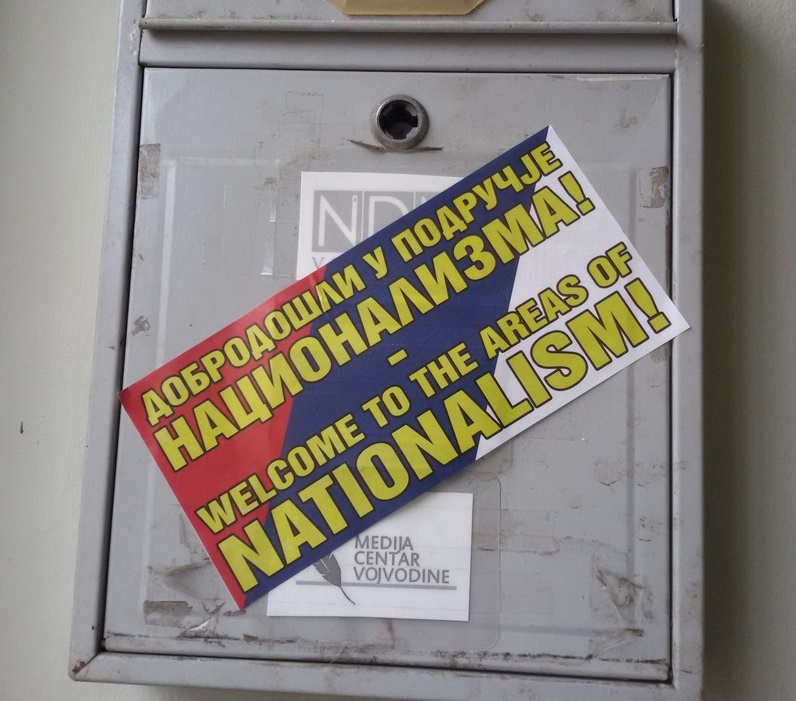
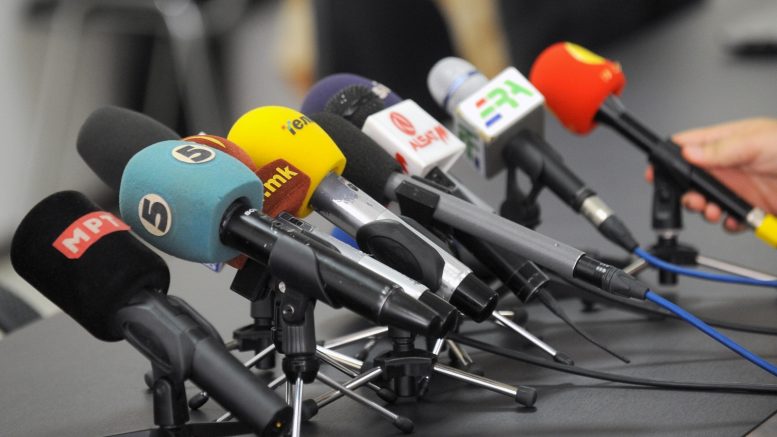


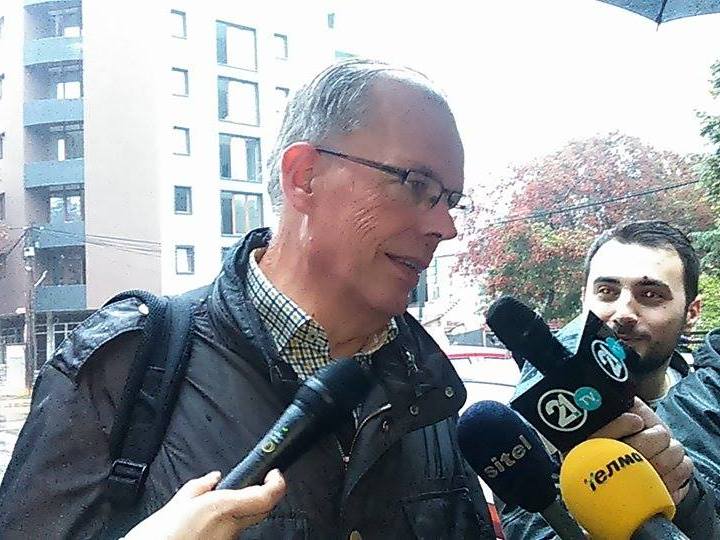
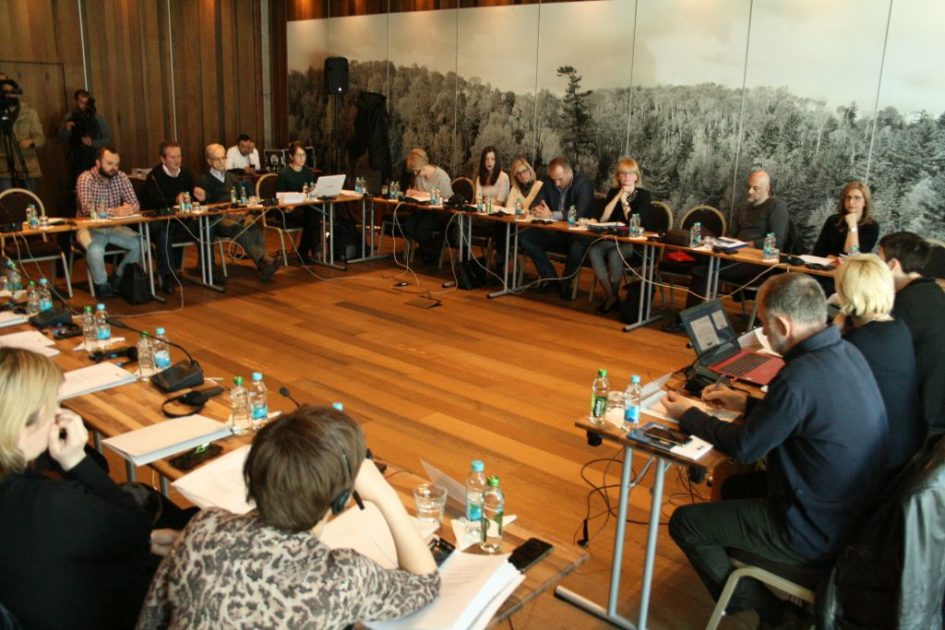
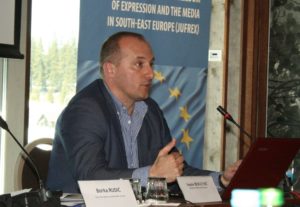 „The European Convention on Human Rights protects not only content but also the means of communicating information,” Bogunić emphasized, adding that the ECHR, through its work, issued a series of judgments representing the corpus of the principles of freedom of the press and its role as a watch guard in democratic societies how the international legal framework recognizes those forms of expression subject to constraints.
„The European Convention on Human Rights protects not only content but also the means of communicating information,” Bogunić emphasized, adding that the ECHR, through its work, issued a series of judgments representing the corpus of the principles of freedom of the press and its role as a watch guard in democratic societies how the international legal framework recognizes those forms of expression subject to constraints.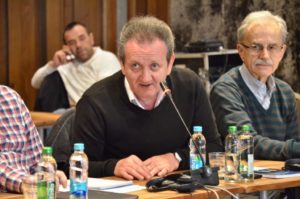
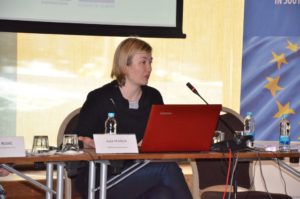 „Besides imposing sanctions against service providers, there are other aspects of the work of regulators that contribute to an effective framework for preventing hate speech. They include transparency, professionalism, accountability, inclusiveness, media literacy and the continuation of cooperation with all relevant actors who fight against hate speech from different perspectives“, said the representative of the regulatory body, Azra Maslo.
„Besides imposing sanctions against service providers, there are other aspects of the work of regulators that contribute to an effective framework for preventing hate speech. They include transparency, professionalism, accountability, inclusiveness, media literacy and the continuation of cooperation with all relevant actors who fight against hate speech from different perspectives“, said the representative of the regulatory body, Azra Maslo.
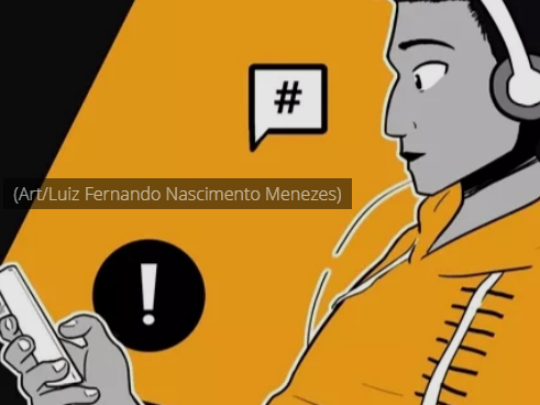
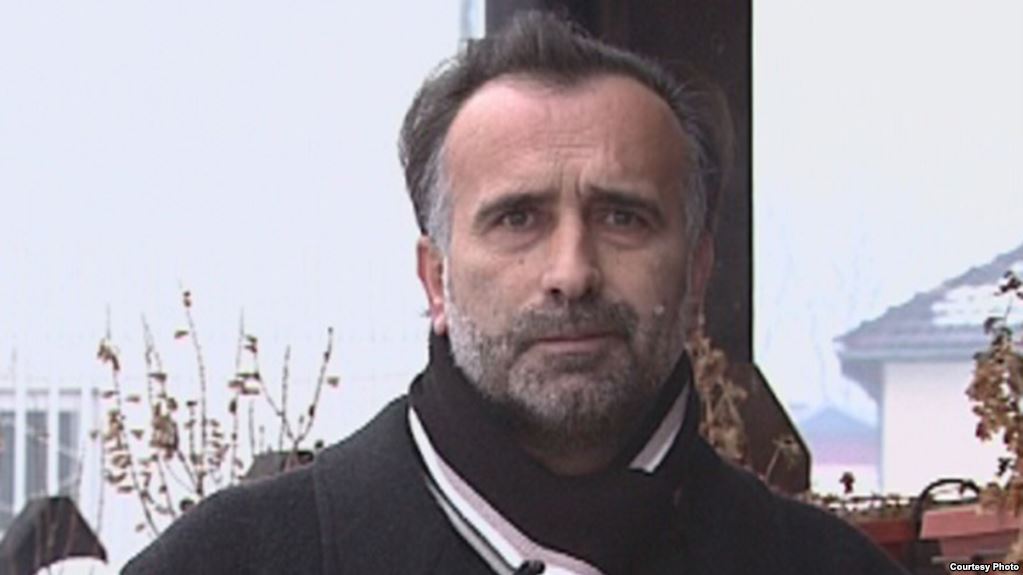

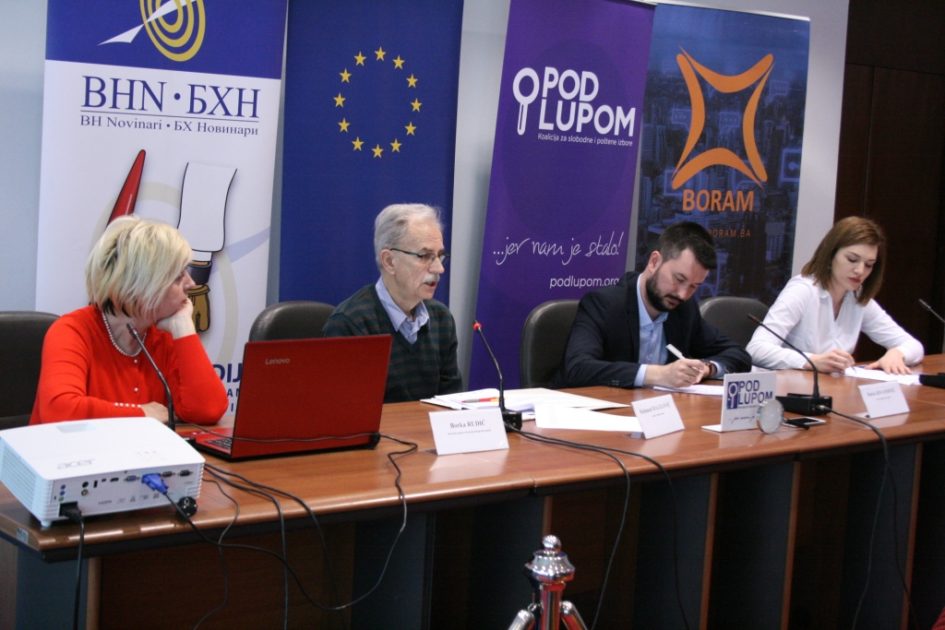
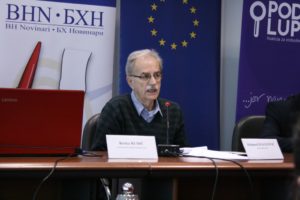
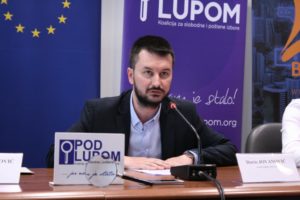 The subject of this research is media coverage in the central news programs of three public broadcasters in Bosnia and Herzegovina: BHT, FTV and RTRS. In the narrower sense, the subject of research is the statements of political subjects at BiH public services, with the aim of determining how much media attention has been devoted to informing about local elections.
The subject of this research is media coverage in the central news programs of three public broadcasters in Bosnia and Herzegovina: BHT, FTV and RTRS. In the narrower sense, the subject of research is the statements of political subjects at BiH public services, with the aim of determining how much media attention has been devoted to informing about local elections.